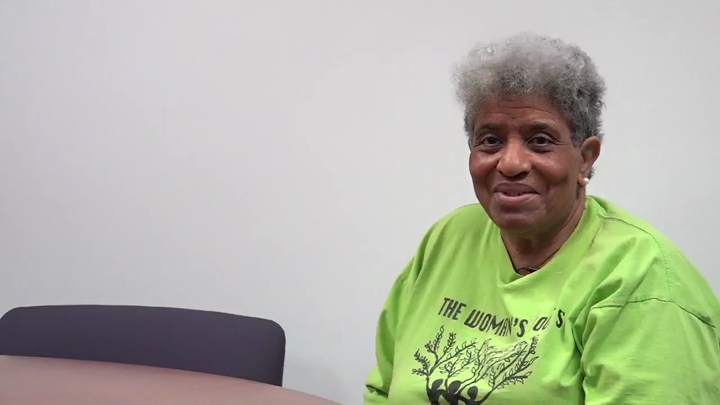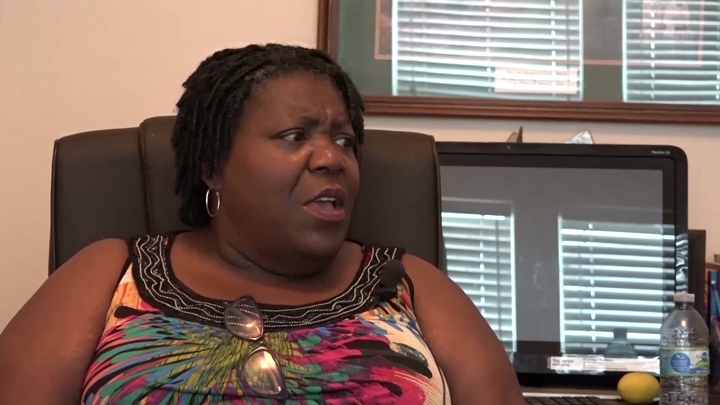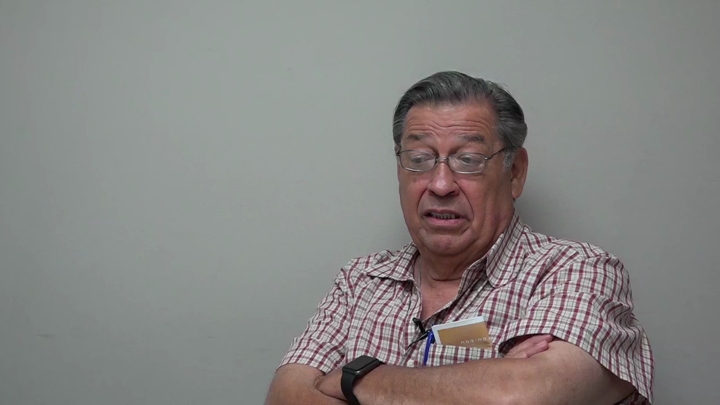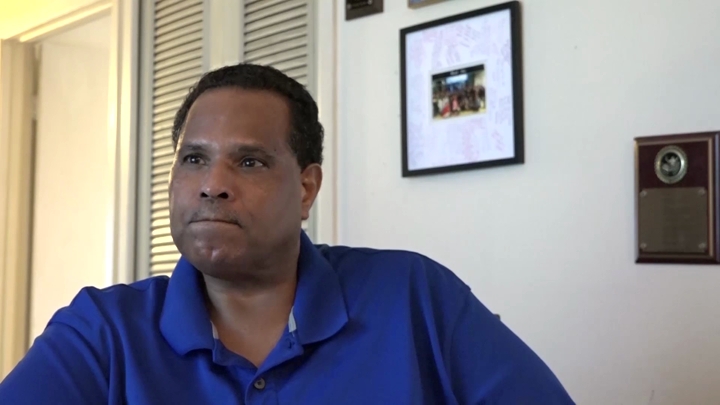Luthuli-Allen / High Tide and Low Tide of Civil Rights
sign up or sign in to add/edit transcript
Lituli-Allen: But if I can just fast-forward, a little bit in terms of our scholastic—our athletic life that we had even though or facilities were poor or sub-standard I should say. When we got ready and decided we should go to college, and I wanted to go to the University of Houston. I think it was basically the lure of the big city, I thought that there might be jazz in the big city. I loved jazz from the time I was very young. I listened to a lot of jazz growing up. Whereas athletes were most people’s heroes, my heroes were musicians. So, myself and my friends concentrated on jazz musicians. Anyway, when I decided to come to the University of Houston and I had to take the SAT test, even though we came from segregated environments, our scores would stand up anywhere. We had the kind of fundamentals that we could make the kind of scores that we needed to get into the best college in the country. The students did tell me that when I was in high school, the system of racial domination, it got to be really disturbing so we were always in skirmishes with some of the more reactionary elements of the white community. So, when I was in high school, we started campaigns to register citizens to vote. I was fortunate enough that I was president of my class from seventh to twelfth grade. So, we did voter registration once we became able to vote. You know, Louisiana had a white primary and everything, but after that was smashed we became able to vote. Which meant that some of these activities and some of this wanting to smash segregation, we had some mild demonstrations at the red lights and things like that which were basically “Two, Four, Six, Eight, we want to integrate” you know, those kind of things. The concern was that we were causing too many shockwaves in the racial order. The local black deputy sheriff would come and get my friends and I, take us to the police station and interrogate us. I really didn’t realize just how frightful that was to my mother because she never knew if we were going to come back. Then, I got involved in some efforts to desegregate the pool, the swimming facilities there in Louisiana. It was actually my first year in college, because I entered the University of Houston in the summer of 1966. When I entered the University of Houston and came back home, everything had crystallized in terms of why things were like they were. When I went back to my hometown in Louisiana, I began organizing my schoolmates’ friends to see if we could do something about desegregation of public facilities. The pushback was that the power structure refused to relent. The thing about it was that the movement was inexorable, in that they couldn’t govern in the same way and we couldn’t live in the same way, so we were on a collision course with destiny I would say. The system began to unravel at the core, and like I said, when I finished high school it would be like the low tide of the fight for democratic rights in the Deep South. The high tide would have been Freedom Summer 1964 in Lowndes County. Around that same time, it was around the time of the murder of Goodwyn, Schwerner, and Cheney, Jimmy Lee Jackson and a host of other people, Vialo Luizzo, Reverend Reed, all of these people were murdered in the Deep South. There was this intense movement especially in terms of allies. A hundred years earlier they would have been known as Abolitionists, whites who joined the Civil Rights movement to actually smash the system of segregation in the Deep South. By the time I came along, in 1966, we were basically going into the low tide where the Civil Rights struggle was making the transition from Civil Rights to what I’m going to call the Black Power phase.
| Interview | Interview with Omowale Luthuli-Allen |
| Subjects | Citizenship › Voting and Voter Registration |
| Race Relations | |
| Discrimination or Segregation › Discrimination or Segregation of Public Accommodations | |
| Education › Secondary Education | |
| Education › Higher Education | |
| Police and Law Enforcement | |
| Electoral Politics › Voter Registration | |
| Black Power | |
| Discrimination or Segregation › Discrimination or Segregation of Public Accommodations › Swimming pools | |
| Recreation and Leisure › Music | |
| Tags | University of Houston |
| sign up or sign in to add/edit tags | |
| Interview date | 2016-06-17 |
| Interview source | CRBB Summer 2016 |
| Interviewees | Luthuli-Allen, Omawale |
| Locations | Houston |
| Louisiana | |
| Lowndes County, Mississippi | |
| Duration | 00:07:02 |
| Citation | "High Tide and Low Tide of Civil Rights ," from Omawale Luthuli-Allen oral history interview with , June 17, 2016, Civil Rights in Black and Brown Interview Database, https://crbb.tcu.edu/clips/3435/high-tide-and-low-tide-of-civil-rights, accessed February 26, 2026 |






